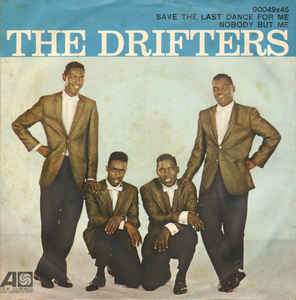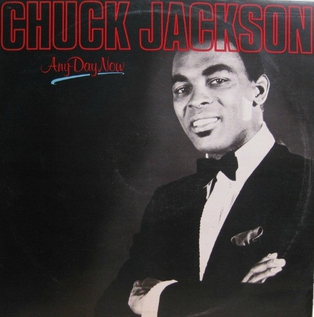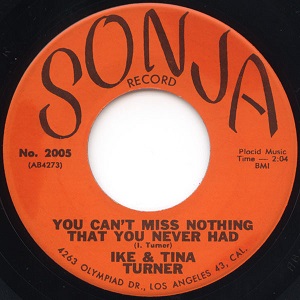
"Let's Stay Together" is a song by American singer Al Green from his 1972 album Let's Stay Together. It was produced and recorded by Willie Mitchell, and mixed by Mitchell and Terry Manning. Released as a single in 1971, "Let's Stay Together" reached number 1 on the Billboard Hot 100, and remained on the chart for 16 weeks and also topped Billboard's R&B chart for nine weeks. Billboard ranked it as eleventh-highest selling song of 1972.

"Ain't Nothing Like the Real Thing" is a 1968 single released by American R&B/soul duo Marvin Gaye and Tammi Terrell, on the Tamla label in 1968. The B-side of the single is "Little Ole Boy, Little Ole Girl" from the duo's United LP. The first release off the duo's second album: You're All I Need, the song—written and produced by regular Gaye/Terrell collaborators Ashford & Simpson—became a hit within weeks of release eventually peaking at number eight on the US Billboard Hot 100 and number one on the Hot Soul Singles chart, the first of the duo's two number-one R&B hits. In the UK "Ain't Nothing Like the Real Thing" reached number 34.
"Young Blood" is a song written by Doc Pomus along with the songwriting team Jerry Leiber and Mike Stoller that first became a hit by The Coasters in 1957.

"Since I Don't Have You" is a song written and composed by Jackie Taylor, James Beaumont, Janet Vogel, Joseph Rock, Joe Verscharen, Lennie Martin, and Wally Lester. It was first a 1958 hit single for the doo-wop group the Skyliners on the Billboard Hot 100. Country music singer Ronnie Milsap had a hit with the song in 1991. American hard rock band Guns N' Roses also had some success in 1994 with their version of the song which reached the top 10 on the UK Singles Chart.

"Save the Last Dance for Me" is a song written by Doc Pomus and Mort Shuman, first recorded in 1960 by American musical group the Drifters with Ben E. King on lead vocals. It has since been covered by several artists, including the DeFranco Family, Dolly Parton, and Michael Bublé.

"Chain Gang" is a song by American singer-songwriter Sam Cooke, released as a single on July 26, 1960.

"Walk Right In" is a country blues song written by musician Gus Cannon and originally recorded by Cannon's Jug Stompers in 1929 by RCA Victor. In 1959, it was included on the compilation album The Country Blues. Another version of the song by the Rooftop Singers, with the writing credits allocated to group members Erik Darling and Bill Svanoe, became an international hit in 1963.
"Honky Tonk Blues" was a hit country and western song written and performed by Hank Williams. The original 1952 recording was a major hit, and it later became a hit for Charley Pride.

"This Magic Moment" is a song composed by lyricist Doc Pomus and pianist Mort Shuman. It was first recorded by The Drifters, with Ben E. King singing lead.
"(Now and Then There's) A Fool Such as I" is a popular song written by Bill Trader and published in 1952. Recorded as a single by Hank Snow it peaked at number four on the US country charts early in 1953.

"She's Not You" is a 1962 song recorded by Elvis Presley and released as a single on RCA Victor.
"There! I've Said It Again" is a popular song written and published by Redd Evans and David Mann in 1941. In early 1945, Vaughn Monroe and his Orchestra released Victor 20-1637, which reached the number one position on the Billboard's National Radio Airplay chart for five straight weeks, then no.2 for six more weeks, and a total run of 29 weeks. It finished 1945 as the no. 4 record of the year.

"Any Day Now" is a popular song written by Burt Bacharach and Bob Hilliard in 1962. It has been recorded by numerous artists over the years, including notable versions by Chuck Jackson in 1962, Alan Price in 1965, Elvis Presley in 1969, Scott Walker in 1973 and Ronnie Milsap in 1982. In the lyrics, the singer predicts the imminent demise of a romantic relationship and describes the sadness this will leave.
"Busted" is a song written by Harlan Howard in 1962. It was recorded by Johnny Cash for Cash's 1963 album Blood, Sweat and Tears. It has been recorded by several notable artists, including Ray Charles, Nazareth (1977), John Conlee (1982) and Chris Ledoux (1982).
"A Lover's Question" is a 1958 Pop, R&B hit for Clyde McPhatter. The single was written by Brook Benton and Jimmy T. Williams and was Clyde McPhatter's most successful Pop and R&B release. The bass singer is Noah Hopkins. "A Lover's Question" made it to #6 on the Billboard Hot 100 and was #1 for one week on the R&B chart.
"Funny How Time Slips Away" is a song written by Willie Nelson and first recorded by country singer Billy Walker. Walker's version was issued as a single by Columbia Records in June 1961 and peaked at number 23 on the Hot C&W Sides chart. The song has been featured in several live action films and television shows, such as in the first episode of the second season of AMC’s Better Call Saul and in the 2020 Netflix drama The Devil All the Time.
"Devil or Angel" is a song written by Blanche Carter and originally recorded by the Clovers in 1955, where it went to number four on the US R&B Best Sellers chart. It was re-recorded by John Bailey after he left the Clovers and formed another Clovers group for Lana Records in 1965.

"I Can't Help It (If I'm Still in Love with You)" is a song written and originally recorded by Hank Williams on MGM Records. It hit number two on the Billboard country singles chart in 1951. In his autobiography, George Jones printed the first six lines of the song and stated, "Its lyrics couldn't be more simple - or profound."

"You Can't Miss Nothing That You Never Had" is a song written by Ike Turner and released by Ike & Tina Turner in 1964.
"Drinkin' Wine, Spo-Dee-O-Dee" is a jump blues song written by Stick McGhee and J. Mayo Williams in 1949 and originally recorded by "Sticks” McGhee & His Buddies. It became an early hit for Atlantic Records, reaching #2 on the US R&B charts.










